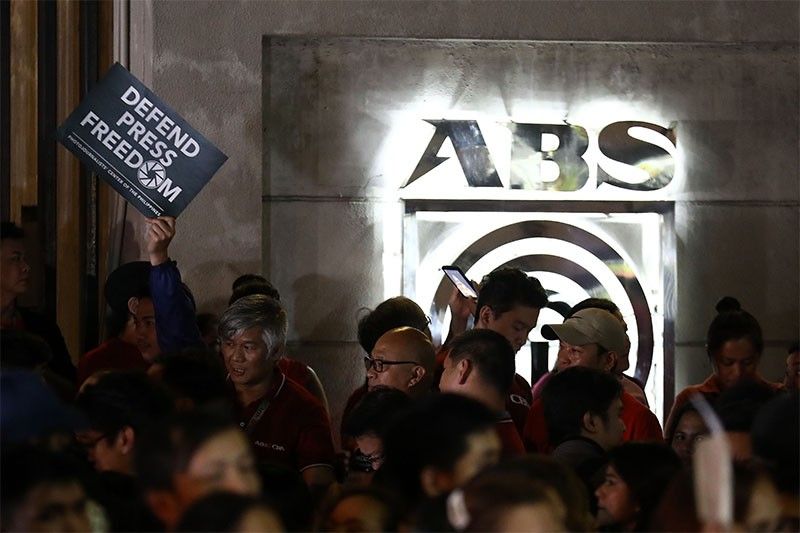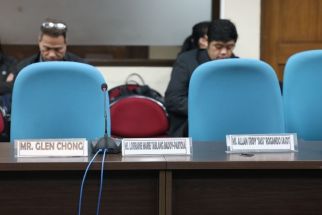Gag order vs ABS-CBN 'a disservice to Filipino people', network tells SC

MANILA, Philippines — A gag order against ABS-CBN, its journalists and its artists, would violate press freedom and take away of source of information for Filipinos, the network argued in its comment on the government’s bid to gag them pending the resolution of its quo warranto petition against its franchise.
"[A] gag order against ABS-CBN would be a huge disservice to the Filipino people as it would deprive them of a vital source of information on a matter of transcendental importance," the network said in its Comment filed Monday morning before the Supreme Court.
The network has yet to release a copy of its Comment, but an ABS-CBN report quotes from it.
The pleading was filed in answer to Solicitor General Jose Calida’s plea for the issuance of a gag order against its commentaries, explainers and its artists’ statements.
"The sub judice rule should not be applied to impair, through prior restraint, the fundamental freedoms of speech and of the press that serve as bedrocks of a democratic society," the network added.
As ABS-CBN filed its comment, the Senate held its first public hearing on its bid for franchise renewal and allegations of violations committed by the network.
FOLLOW: LIVE: Senate hearing on ABS-CBN franchise renewal, alleged violations
Calida’s gag order plea
Calida accused the network of engaging in “propaganda in clear attempt to elicit public sympathy, sway public opinion, and, ultimately to influence the resolution” of the quo warranto petition he earlier filed against the network.
He raised that the network violated the sub judice rule when it released video explainers of, and reports on the development of, Calida’s quo warranto petition; commentaries of the network’s online arm and “statements given by ABS-CBN, its artists and other personalities to various media outfits on the petition for quo warranto.”
Jurisprudence defines sub judice rule as one that “restricts comments and disclosures pertaining to judicial proceedings to avoid prejudging the issue, influencing the court, or obstructing the administration of justice.”
The motion for the issuance of gag order was filed a week after Calida filed the quo warranto petition.
But the network argued that the sub judice rule was “created for a limited purpose—to prevent interference with, obstruction or impediment to the administration of justice and the erosion of the public’s trust in the justice system.”
“To presume that the Members of the Honorable Court would be unable to render impartial judgment merely because of the public discussion of the issues involved in the Petition is to diminish their intelligence, experience and independent thought,” it added.
The broadcast giant also said that public trust in the justice system is demonstrated by the Judiciary’s “ability to render independent judgment without impairing fundamental rights” and not by stifling public discussion on issues.
'Vague' gag order
The Office of the Solicitor General has not made public the copy of the motion for gag order it filed before the SC, but in its statement, it said that it wants a gag order against “parties and persons acting on their behalf from releasing any statements discussing the merits of its quo warranto petition.”
The network raised that the coverage of the gag order that Calida wants is vague.
“Will the gag order apply to the entire Filipino people? The government is part of the Republic. Will all government officials and employees be covered by the gag order?” it said.
“’Persons acting on their behalf’ is also vague. Would anyone making public statements in favor or against a party be acting on their behalf?” ABS-CBN also said.
The network said that an indirect contempt proceedings may be issued, which it called “less restrictive” than a gag order.
The SC will meet for an en banc session on Wednesday, February 26, where Calida’s plea for gag order may be put on agenda.
- Latest
- Trending


































